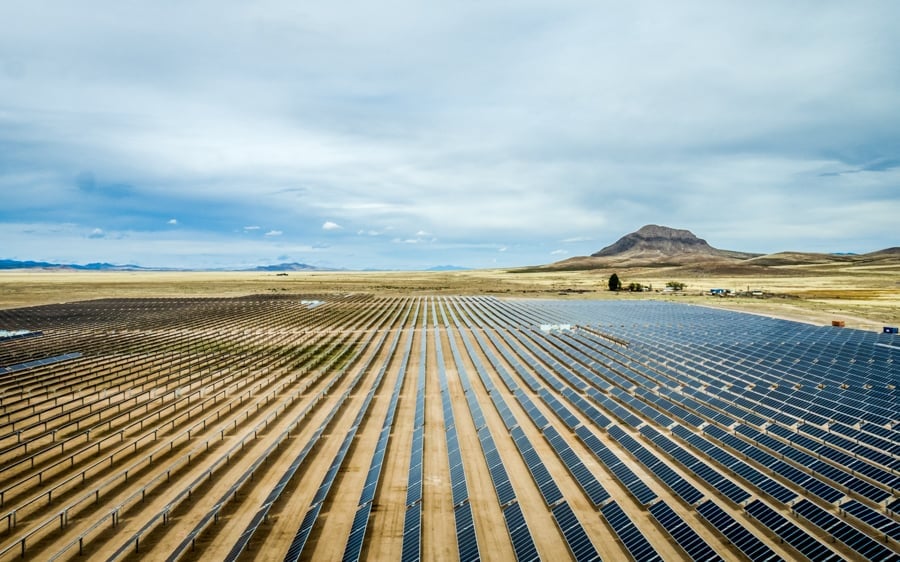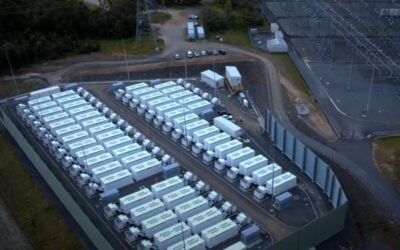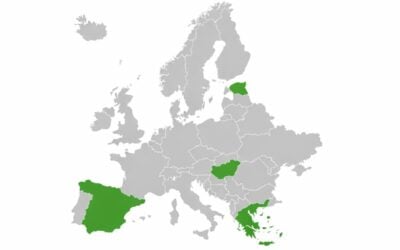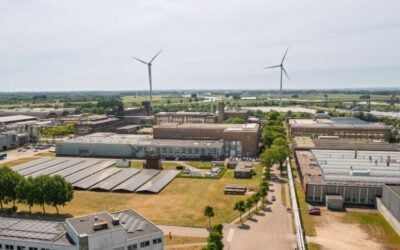
Publicly owned California utility Sacramento Municipal Utility District (SMUD) has bolstered its renewable energy portfolio after finalising the terms of a long-term power purchase agreement (PPA) with developer D. E. Shaw Renewable Investments (DESRI).
In a move that other offtakers could follow in light of current uncertainty over the direction of US president Donald Trump’s tariff policies, the utility has included provisions within the PPA that protect it from any future tariff-induced project price hikes.
After DESRI submitted its PPA offering with the utility last year, SMUD is set to discuss and approve the deal this week (14 May) at its monthly Board of Directors meeting.
640MWh BESS retrofit at decommissioned nuclear site
Under the terms of the PPA, SMUD will purchase the energy, capacity and ancillary services from DESRI’s newly proposed 160MW/640MWh Dry Creek Energy Storage project for a period of 20 years, commencing 30 September 2027.
Try Premium for just $1
- Full premium access for the first month at only $1
- Converts to an annual rate after 30 days unless cancelled
- Cancel anytime during the trial period
Premium Benefits
- Expert industry analysis and interviews
- Digital access to PV Tech Power journal
- Exclusive event discounts
Or get the full Premium subscription right away
Or continue reading this article for free
DESRI is retrofitting the BESS to its operational 160MW Rancho Seco Solar II facility, located approximately 26 miles southeast of Sacramento, California, at the site of the decommissioned Rancho Seco Nuclear Plant.
Initial development of the Rancho Seco Solar II facility was carried out by Australian real estate company Lendlease, before DESRI acquired the project during the beginning of 2020.
This pre-COVID transaction was one of the final individual project sales carried out by Lendlease, before the Australian company’s renewable development arm was acquired and rebranded to Vesper Energy by Illinois-based asset management firm Magnetar Capital.
SMUD is already receiving offtake from Rancho Seco solar II facility under a 30-year PPA that it negotiated with Lendlease during 2019 prior to the sale. The publicly-owned utility is also the sole offtake of a smaller 10.88MW solar facility on the site that is also owned by DESRI.
The battery retrofit will utilise the same point of interconnection as the Rancho Seco Solar II facility and will require an addendum to the site’s California Environmental Quality Act (CEQA) permit, which SMUD will be responsible for. Although the initial contract is 20 years in length, SMUD has the option to extend the contract by five years and also an option to purchase the facility outright after Year Eight.
Protection against future tariff-induced price increases
President Trump’s tariff policies have caught global markets off guard. Although there has been a seeming breakthrough this week following US-China trade talks, the reciprocal tariff announcement, subsequent 90-day pause, and trade dispute with China—by far the biggest exporter to the US of components and systems for BESS projects—have seen the industry attempt to mitigate both their potential impact and the uncertainty caused.
US-headquartered system integrator and technology provider Fluence said that it had mutually agreed to pause contracts with some US customers after witnessing “considerable economic uncertainty in global markets” in the wake of tariff announcements.
With the ongoing tariff uncertainty, SMUD and DESRI have included provisions within the PPA that shield the utility from any project price hikes caused by implementing tariffs from “any Government authority” after 1 April 2025.
According to upcoming meeting documentation, SMUD has full dispatch rights to the BESS at a fixed contract price, expected to cost the utility approximately US$25 million annually.
If an independent evaluator finds that tariffs have directly impacted the cost of the Dry Creek Energy Storage project, the increase to the contract price will not exceed a predetermined price cap.
However, if the project does become too expensive for DESRI, the developer will presumably attempt to amend the contract price or terminate the PPA altogether. This is something the industry has seen countless examples of over the past few years, especially where contracts were signed prior to the COVID-19 pandemic and before the huge global disruption to global supply chains.
As reported by Energy-Storage.news, EDF Renewables North America recently terminated a PPA with Southern California Public Power Authority (SCPPA) associated with a solar and storage project in Riverside County due to rising development costs.
Only so much can be done to protect against tariffs
Although different from the pandemic due to its slightly more predictable nature, the implementation of high tariffs on Chinese products could also disrupt the growth trajectory of the US energy storage industry by inflating costs. We are yet to see what sort of level of tariff will be settled on once the current agreement expires after 90 days from yesterday.
In a recent earnings call, Tesla CFO Vaibhav Taneja said that the threat of tariffs to the company’s energy storage division would likely be “outsized”, due to the lithium iron phosphate (LFP) battery cells used in its Megapacks being sourced from China.
Taneja explained that although Tesla is attempting to manufacture LFP cells in the US, onshore production will only supply a fraction of its projected capacity. The Tesla CFO added that even the onshoring process may not be immune to tariffs, with the equipment used to manufacture the cells likely coming from China.





